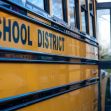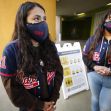Three minors. R.D. et. al. who attended the “LA’s Best” after-school program at Los Angeles Unified School District’s (LAUSD) Arminta Street Elementary School in North Hollywood were sexually abused in 2014-2015 by John Salinas, one of six LA’s Best program coaches. The school argued that since it had no knowledge of the coach’s wrongdoing or propensities, it should not be held liable for damages.
Salinas served as a computer lab supervisor as well as a coach. His alleged abuse occurred in the lab where he inappropriately touched three girls, aged 8, 9, and 11, on their buttocks, breasts and genitals. When one of the girls told her parents, Salinas was fired, arrested and convicted in 2015. The lawsuit against LAUSD alleged that the employees who ran LA’s Best had negligently hired, retained and supervised Salinas. They claimed the school district “failed to take reasonable steps and/or implement reasonable safeguards to avoid Salinas’s abuse” and failed to properly supervise him when they “allowed him to operate in isolated environments.” The lawsuit also alleged that the LAUSD staff “had suspected or had reason to suspect that abuse was occurring.”
Los Angeles Superior Court Judge Jon B. Takasugi granted LAUSD summary judgment. In its motion for summary judgment, LAUSD had argued, “To prove liability, the plaintiff is required to demonstrate that a supervisory or administrative employee of the school district knew or had reason to know of the dangerous propensities of the employee who injured the plaintiff and acted negligently in hiring, supervising and retaining that employee.”
The students appealed and the appellate court reversed, finding that “foreseeable injury includes the potential for sexual abuse by school staff in general.”
While reversing Takasugi’s summary judgment, however, the appellate court did find that liability for common law negligence could be found in the Government Claims Act that governs LAUSD’s liability for torts. The Act says that “a public entity is liable for injury proximately caused by an act or omission of an employee of the public entity within the scope of his employment if the act or omission would…have given rise to a cause of action against that employee or his personal representative. This part of Takasugi’s ruling was affirmed.
Plaintiffs argued that because of the special relationship between public schools and their students, LAUSD was negligent in hiring, retaining, and supervising the abusive employee. In a 2-1 unpublished decision, authored by Justice Gregory Weingart of Division One of California’s Second District Court of Appeal on December 4, the court explained that “this appeal requires deciding between two competing tests for the foreseeable injury element of due care.”
One test requires that school personnel knew or should have known about the “deviant propensities” of abusive employees but “nevertheless hired, retained or inadequately supervised him.” The competing test says that “foreseeability does not require such actual or imputed knowledge about the specific employee, and instead addresses the foreseeability of risk to students in general from sexual abuse by persons at the school.”
Weingart’s opinion begins with a discussion of relevant legal principles. The plaintiffs argued that LAUSD would be vicariously liable because it failed to use “due care to protect” the students from abuse. The Justice then explained that this theory “relies on the special relationship between school employees and schoolchildren,” and he proceeded to clarify the Special Relationship Doctrine.
This doctrine was detailed in a 2021 California Supreme Court case, Brown v. USATaekwondo that held that a “third party may have an affirmative duty to protect the victim of another’s harm if that person is in what the law calls a ‘special relationship,’… that gives the victim a right to expect protection…” Courts have long found that this special relationship exists between school employees and students and when it does, an “affirmative duty” is imposed on the school district to take all reasonable steps to protect its students.”
This duty requires application of “Rowland factors,” which include: the foreseeability of harm, the degree of certainty that injury was suffered, the moral blame caused by defendant’s conduct, the policies in place to prevent future harm, the burden to the defendant of imposing a duty of due care, as well as the “availability, cost, and prevalence of insurance for the risk involved.” The opinion, however, did not address the factors because the Brown case was not decided until after the summary judgment decision.
Weingart found fault with the trial court’s grant of summary judgment, noting, “The trial court found the duty owed by LAUSD’s supervisory employees to protect students from negligent or intentional harm caused by a third person arose only if those employees knew or had reason to know of Salinas’s dangerous propensities.” He said that on the contrary, “the special relationship between school employees and students imposes on such employees “the duty to use reasonable measures to protect students from foreseeable injury at the hands of third parties acting negligently or intentionally.”
He wrote that the appellate court rejects the “knew or had reason to know” argument because “school administrative and supervisory employees have a “duty to use reasonable measures to protect students from foreseeable injury,” which includes the potential for sexual abuse by school staff.
The appellate decision authored by Weingart was a 2-1 ruling, with Judge Victoria Chaney filing a lengthy dissent. In his majority opinion, Weingart provided the reasons he disagreed with Chaney’s dissent, which stated that “a plaintiff must prove either that a supervisor actually knew about the teacher’s deviant propensities… or that circumstances put the supervisor on notice about them.” In this case, she wrote, background checks had been done on Salinas and there was “no evidence that the district either ignored or set itself up to miss suspicious behavior or potential signs of abuse, and nothing the district observed or reasonably failed to observe gave it constructive knowledge that Salinas was a predator.”
The Special Relationship Doctrine led to the appellate court’s reversal of the judgments and their remand for further proceedings. Hopefully, it will also lead to more extensive oversight of all employees in the future.






